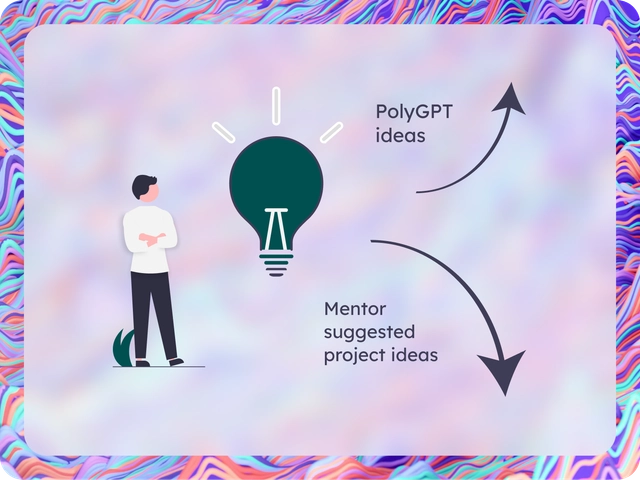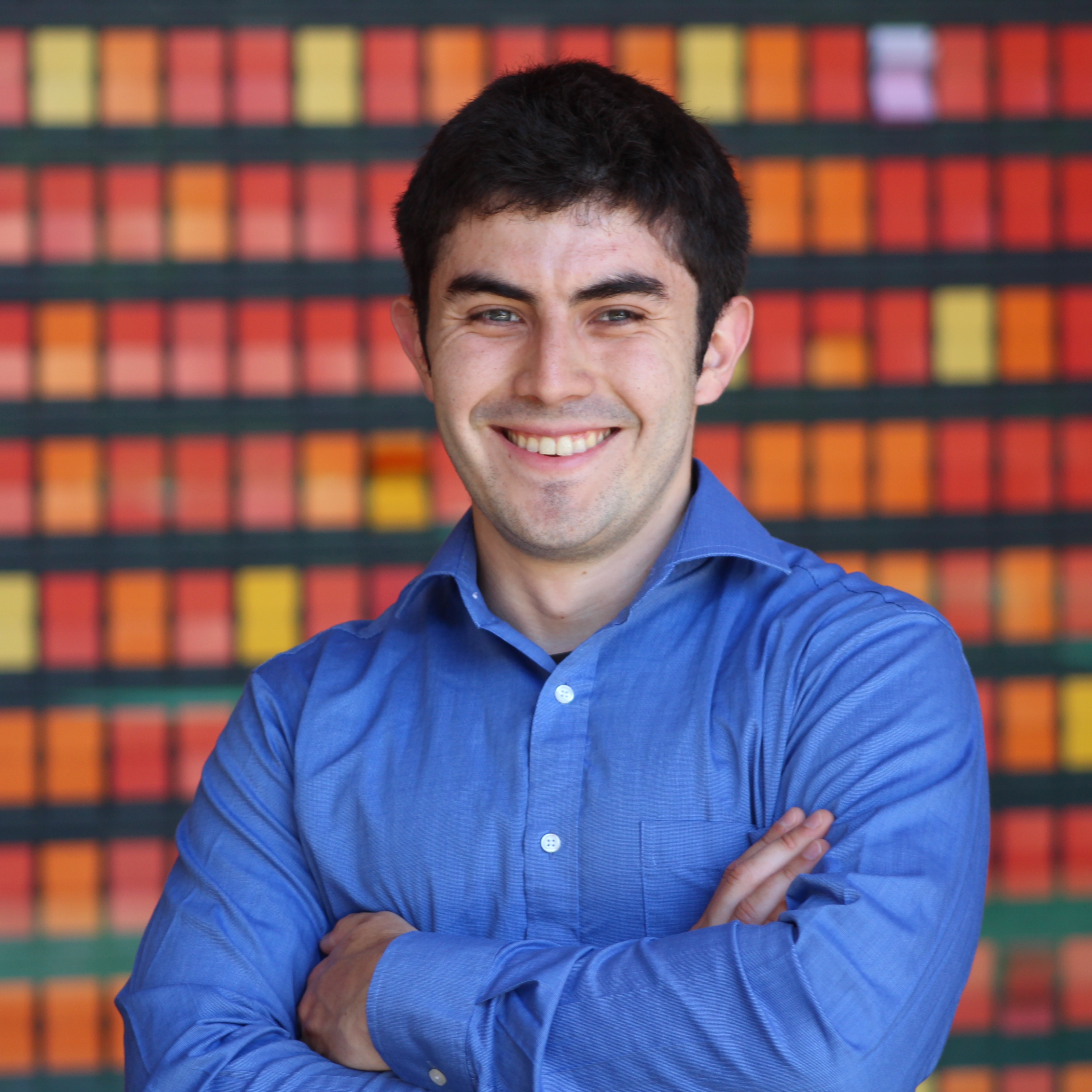Meet PolyGPT, our AI-powered Project Idea Generator
Tell PolyGPT your favorite subject and a few hobbies you're passionate about to generate personalized project ideas.
Log in to explore PolyGPTExplore project ideas with the help of PolyGPT
See your personalized project ideas come to life with PolyGPT! Log in to brainstorm ideas.

We know the jump from your interests to a research project idea can be tricky.
That's why we've built tools to help you find the perfect project idea to lay the foundation of a successful project. Simply copy your favorite idea to your clip board, and paste it in the project idea section of the application.

Browse project ideas by Polygence mentors
College Application Help
Can design a college application proposal from brainstorming all the way to personal statements. Includes scholarship or fellowship applications! Previous experience in Caltech, MIT, Brooke Owen Fellowship, and various scholarships.
Economics, Engineering

How smart are AI Applications?
Artificial Intelligence (AI) aims to mimic human intelligence. When successful (especially generative AI) it produces applications that can exhibits behavior like what smart people do. Applications such as ChatGPT can engage in a a serious conversation with a human being, come up with a piece of code in Python, Java, C++ or any other program ming language to solve a complex problem, can write a smart power point presentation on a topic can produce videos according to users request and specification, etc. However, though AI application may behave like smart human beings in some areas, the way AI works is fundamentally different from the way humans acquire intelligence. For example, while AI depends crucially on very large amounts of data and on previous encounters of clues in its data (machine learning) to make decisions, human intelligence can make decisions on unseen and novel problems very easily. This research is multifaceted and different students can different aspects of the general problem under investigation.
AI/ML

Artificial Intelligence and Hunan Intelligence
This is an investigation into the relationship between human intelligence (HI) and current applications of Artificial Intelligence (AI). We examine the basic assumption that AI is an attempt to mimic natural HI. We want to determine what areas both AI and HI agree and what areas they disagree. We would like also to consider how far AI reflects our understanding of what Human Intelligence is. In areas where they disagree, what impact does that have on current AI applications.
AI/ML

Miscellaneous Projects
1. I can assist in developing games from concept to prototype. 2. I can also assist in structuring and optimizing blogs to attract readers, enhancing the user experience.
Biotech, Music, Business

Literature Review for Beginners - Podcast or Writeup
In this project we will conduct a literature review on a topic of your choosing. The core idea will be to identify how different strands of the literature connect to each other, and how our understanding of the topic of your choosing has evolved over time. The final deliverable will be either a podcast-style discussion of your literature review or a short writeup that summarizes your findings.
AI/ML, Economics

Machine Learning Classification for Beginners
In this project, we will construct different machine learning models to perform a classification task of your choosing. We will both discuss and find appropriate data, and I will guide you through the whole lifetime of the process: data cleaning, preprocessing, model implementation and comparison. The final deliverable will be a Github repository with your functional code that you can add to your portfolio.
AI/ML, Economics

Climate Anxiety in Everyday Life: : An Interview Study of Climate Anxiety, Meaning, and Coping
This research project examines how people experience, interpret, and respond to climate change in their everyday lives, with particular attention to climate anxiety and related feelings such as grief, dread, anger, numbness, and hope. Using in-depth interviews, the study aims to understand not only what climate distress feels like for individuals, but also how it becomes shaped by people’s social locations, community ties, and broader cultural narratives about responsibility, uncertainty, and the future. The project asks: How do people make meaning of climate threat? What kinds of coping strategies do they describe (e.g., emotional regulation, avoidance, activism, spiritual practices, mutual aid)? And how do they decide what counts as a “reasonable” response to living in a time of ongoing crisis? To carry out this project, the student will strengthen their skills in qualitative research design and interviewing, including developing an interview guide, recruiting participants, building rapport, and conducting ethical human-subjects research. The student will also become acquainted with theories of emotion, environmental inequality, risk, and care, and learn practical methods for analyzing interview data (e.g., transcription, coding, and thematic analysis).
History, Literature

Who Loses the Most When Prices Rise? Tracking Inflation’s Impact on Everyday Life
This project looks at inflation from a policymaker's point of view: how rising prices affect different people depending on what they spend money on. We will analyze inflation data for categories like food, rent, gas, and transportation, then simulate how purchasing power changes for different income levels using Excel models. With basic machine learning trend analysis, we will identify which groups are hit hardest during inflation spikes. I help students connect their findings to economic theory and real policy debates. The final outcome is a macroeconomics research paper that makes inflation personal, data-driven, and easy to explain.
Economics, Finance

Decision-Making in the Real World
Investigate how people make decisions under uncertainty, pressure, or limited information, drawing from cognitive science, psychology, and behavioral economics. Students can explore topics such as risk-taking, cognitive biases, emotional regulation, or adaptive decision-making in everyday contexts like school, health, or technology use. The final product could take the form of a research paper, applied analysis, or visual or multimedia project translating theory into practice.
Neuroscience, Psychology, Quantitative, Cognitive

Translating Brain Science Into Practice
Create a research-informed project that translates cognitive science findings into practical applications for education, health, policy, or industry. Students will identify a body of brain science research and reframe it for a real-world audience, such as educators, caregivers, policymakers, or the general public. This project could result in a paper, presentation, policy brief, or multimedia resource designed to make brain science accessible, human, and actionable.
Neuroscience, Psychology, Quantitative, Cognitive
